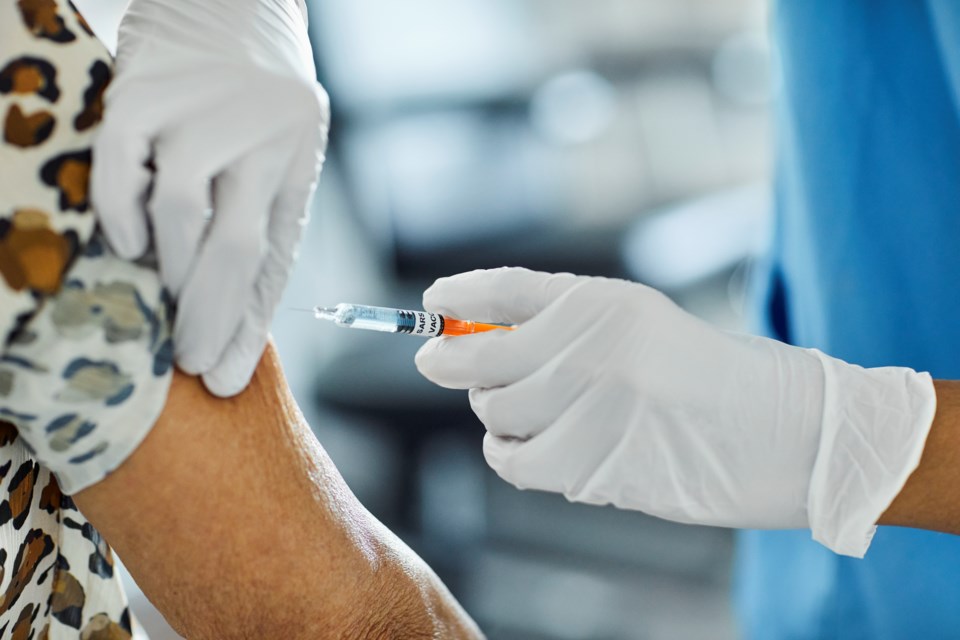Wondering how long is too long to wait for a vaccine booster shot?
You're not alone.
B.C. has ramped up its vaccination effort tremendously in the past few weeks. Now, over 75 per cent of adults are vaccinated with their first dose, exceeding the target Step 2 minimum threshold of 65 per cent.
But while the majority of British Columbians have received one dose of a coronavirus vaccine, many of them haven't been contacted about a second dose.
Provincial Health Officer Dr. Bonnie Henry said that people shouldn't feel anxious about getting their second jab. Instead, she underscored that a longer interval between first and second doses will offer better protection.
"It's shown that if you have a slightly longer interval, you're getting stronger and longer-lasting protection," she said. "So we don't want to reduce that interval too much so that we have longer-lasting protection going through next fall."
That said, Henry noted that it is "incredibly important" to get your second dose when it becomes available.
Over the next two weeks of June, Health Minister Adrian Dix noted that there are dozens of communities offering walk-in, pop-up clinics offering first doses.
B.C.'s top doctor commented that the vaccine has been shown in studies to be effective against highly transmissible variant strains of the virus, such as the Alpha and Gamma.
How long will British Columbians have to wait for their second dose?
While it will vary across the province, some people may have to wait over eight weeks for the second dose of vaccine.
Henry stated that "wait times will be coming down for the mRNA vaccines for the mass clinics so that will help a little bit," but that it is will be reasonable for people to "wait 12 weeks for AstraZeneca."
People in communities with low rates of transmission may see longer waits for AstraZeneca, she said. "So, it is a little bit dependent on where you live and which vaccine you can access sooner."
Health officials will have more information by the end of June regarding AstraZeneca, too. "So if your 12 weeks isn't up by the end of June, that can be helpful," noted Henry.
"I can't give you a definitive answer right now about whether it's the same or better to receive an mRNA vaccine after the first dose of AstraZeneca," she said. "I can tell you that it's not worse and that there's what we call non-inferiority — which is kind of a funny way of saying in the medical terms that they are at least as good as receiving a second dose of AstraZeneca."
The transition into Step 2 of the four-step restart plan aligns with key metrics for moving forward. More than 75 per cent of adults are vaccinated with their first dose, exceeding the target Step 2 minimum threshold of 65 per cent. The other metrics for moving through the stages - COVID-19 cases and hospitalizations - continue to steadily decline.



